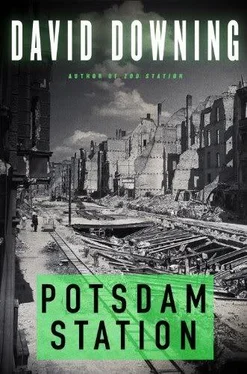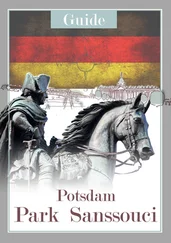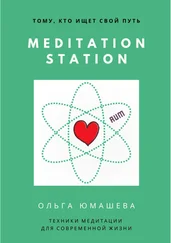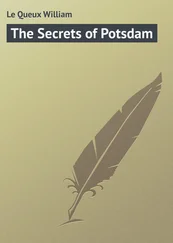David Downing - Potsdam Station
Здесь есть возможность читать онлайн «David Downing - Potsdam Station» весь текст электронной книги совершенно бесплатно (целиком полную версию без сокращений). В некоторых случаях можно слушать аудио, скачать через торрент в формате fb2 и присутствует краткое содержание. Жанр: Шпионский детектив, на английском языке. Описание произведения, (предисловие) а так же отзывы посетителей доступны на портале библиотеки ЛибКат.
- Название:Potsdam Station
- Автор:
- Жанр:
- Год:неизвестен
- ISBN:нет данных
- Рейтинг книги:5 / 5. Голосов: 1
-
Избранное:Добавить в избранное
- Отзывы:
-
Ваша оценка:
- 100
- 1
- 2
- 3
- 4
- 5
Potsdam Station: краткое содержание, описание и аннотация
Предлагаем к чтению аннотацию, описание, краткое содержание или предисловие (зависит от того, что написал сам автор книги «Potsdam Station»). Если вы не нашли необходимую информацию о книге — напишите в комментариях, мы постараемся отыскать её.
Potsdam Station — читать онлайн бесплатно полную книгу (весь текст) целиком
Ниже представлен текст книги, разбитый по страницам. Система сохранения места последней прочитанной страницы, позволяет с удобством читать онлайн бесплатно книгу «Potsdam Station», без необходимости каждый раз заново искать на чём Вы остановились. Поставьте закладку, и сможете в любой момент перейти на страницу, на которой закончили чтение.
Интервал:
Закладка:
Russell sighed. 'And now it's almost over,' he said, as much to himself as to Strohm. 'How are the Russians behaving in the suburbs?'
Now it was Strohm's turn to sigh. 'Not well. There have been many rapes in Weissensee and Lichtenberg. Even comrades have been raped.'
'I can't say I'm surprised,' Russell said. 'The Soviet papers have been almost inviting the troops to take their revenge,' he went on. 'They've changed their tune over the last few weeks, but I think the damage has already been done. '
'You're probably right, but I hope not. And not just because the women of Berlin deserve better. If the Red Army behaves badly, it'll make things so much more difficult for the Party. The people already lean towards the English and Americans, and we need the Red Army to behave better than their allies, not worse.'
Fat chance, Russell thought. 'Indiscriminate shelling is not going to win the Soviets many post-war friends in Berlin.'
'No, probably not. But at least there's some military point to that – the Nazis are still resisting. But raping hundreds of women… there's no excuse for that.'
'None,' Russell agreed, thinking about Effi. 'Look, I owe you a great deal…'
'You owe me nothing.'
'Well, I think I owe you something, but it's not going to stop me asking another favour.' He told Strohm about Effi, how she'd come back to Berlin, and probably become involved with a resistance group. 'She suddenly disappeared a few weeks ago, and her sister is convinced that she's been arrested. Is there any way you could check if that's true, and if it is, find out where she was taken? She's using the name Erna von Freiwald.'
Strohm looked up. 'I've heard that name in connection with one of the Jewish escape committees. But I never dreamt it was Effi Koenen. I thought she escaped to Sweden with you.'
Russell explained why Effi had chosen to stay behind.
'We have men in the police, but I have no idea if any of them are still at work. The area around the Alex is being turned into a strongpoint.'
'I know,' Russell said wryly. He told Strohm about his attempted visit, and the day of hard labour that had resulted.
'Ah. Well, I will see what I can find out, but don't get your hopes up – it may well be nothing. But before I go, tell me, the work we were doing in 1941 – did you get the story out?'
'I did,' Russell told him. 'But not in the way we wanted. The big story I had – the gas that Degesch produced for the SS without the usual warning odour – that must have gone into a dozen papers. But no editor was willing to headline it, to put it all together, and tell the whole story for what it was – the attempted murder of an entire people.'
'Why?' Strohm asked, just as Kenyon had in Moscow.
Russell offered him the same guesses, and shrugged. 'I tried. I made such a pest of myself that one editor actually hid in his cupboard rather than see me. I think that was when I realised I was onto a loser.'
'That's a terrible shame,' Strohm said quietly. 'But perhaps we were foolish to expect more.' His face was lined with sadness, and Russell found himself wondering how Strohm would make out in a Soviet-dominated Germany. Here was a man who wanted to believe in a better world – who had no hesitation about putting his own life on the line in pursuit of it – but who found it harder and harder to muster the required suspension of disbelief. He had seen through the lie that was Western capitalism, seen through the lie that was fascism. And soon he would see through the lie that was communism. He was too honest for his own good.
They embraced again, and Strohm disappeared down the staircase, calling out over his shoulder that he'd return with any news.
Varennikov, it seemed, had understood enough of the conversation to form his own judgement. 'Your friend seems more of a German than a communist,' he said casually.
'Maybe,' Russell said non-committally. Strohm had actually been born in America, but he doubted whether Varennikov would find that reassuring.
'It will take many years to rebuild our country,' Varennikov said, with an air of someone addressing a hostile meeting.
It seemed like a non-sequitur, until Russell realised that his companion was using the German despoliation of western Russia to justify the Red Army's behaviour in Germany. 'I'm sure it will,' he agreed diplomatically.
'But America has not even been touched,' the Russian went on, as if Russell had disagreed with him. 'I know a few English cities have been bombed, but my country has been laid to waste. You must remember – until the Revolution we had no industry, no dams, everything was backward. People worked so hard to build a modern country, and now they must do it all again. And they will. In fifty years the Soviet Union will be the richest country on earth.'
'Perhaps.'
'Of course, we must avoid another war. That is why the papers we found are so important – if we have an atomic bomb no one will dare to invade us, and all our socialist achievements will be safe from destruction.' His earnest face suddenly broke into a grin, making him look about twenty. 'Who knows? Perhaps we will both be made Heroes of the Soviet Union.' The battle began badly. The machine-gun was destroyed by only the second shell of the opening barrage, killing two of them. The rest ran for the nearest exit, shells exploding around them like the lashes of a giant whip. Had they emerged at the back, they might have kept running till evening, but a wrongly chosen door led them out into enemy fire, and a choice between death and going to ground. Paul had a ten-metre crawl to reach the nearest communication trench, and it seemed a lot farther.
Once inside, he was little more than a spectator. A hail of shells whooshed over him, provoking a sporadic response from the surviving German machine-guns and artillery. The latter, he assumed, were conserving their ammunition.
Clouds of smoke and brick dust coalesced and spread, until the whole area seemed choked in a brown haze. Around nine o'clock, lines of Soviet infantry came charging out of the fug, singing and shouting like there was no tomorrow. For most of them, there wasn't – the first wave succumbed almost to a man. Some had been carrying small boats, but only a single soldier reached the edge of the canal, toppling into the oily water with blood pumping from his neck.
The Soviet artillery redoubled their efforts, slowly reducing the buildings around the harbour to their constituent bricks. Planes came swooping out of the smoke on low-level bombing runs, and stretches of the trench system on either side of Paul were plastered with human gore.
More infantry appeared, and this time some succeeded in launching their boats. None got safely across, but the bodies now floating in the water were like marks left by a rising tide. It was all so fucking predictable, Paul, thought. So many pushes, so many corpses, and sooner or later…
Soviet tanks were now firing across the canal, and drawing no response. The next wave would wash over them, Paul realised. And so, apparently, did Major Jesek. As more Soviet infantry loomed on the southern bank, the order was given to pull back.
Paul joined the rush along the trench, clambering over the dead and still groaning, out into a rubble-strewn gap between ruins. Jesek was there, looking in his element, giving each soldier an encouraging smack on the shoulder until his head blossomed blood and his body pitched into the bricks.
Paul stumbled on, out of the industrial area and into residential streets. There were houses missing in all of them, and houses burning in most. Ahead of him, a soldier was frantically shaking his hands, as if he was trying to dry them – catching him up, Paul saw that the man's mouth was hanging open in a silent scream.
The soldier suddenly sank to his knees.
Читать дальшеИнтервал:
Закладка:
Похожие книги на «Potsdam Station»
Представляем Вашему вниманию похожие книги на «Potsdam Station» списком для выбора. Мы отобрали схожую по названию и смыслу литературу в надежде предоставить читателям больше вариантов отыскать новые, интересные, ещё непрочитанные произведения.
Обсуждение, отзывы о книге «Potsdam Station» и просто собственные мнения читателей. Оставьте ваши комментарии, напишите, что Вы думаете о произведении, его смысле или главных героях. Укажите что конкретно понравилось, а что нет, и почему Вы так считаете.












